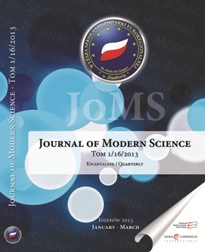Change in the Chinese foreign policy.
Change in the Chinese foreign policy.
Author(s): Hüseyin EmiroğluSubject(s): Recent History (1900 till today), International relations/trade, 18th Century, 19th Century
Published by: Wydawnictwo Akademii Nauk Stosowanych WSGE im. A. De Gasperi w Józefowie
Keywords: People’s Republic of China; global international relations; emerging superpower status; foreign relations of China; China’s historical past;
Summary/Abstract: China was the most important political center in the world until the 19th century, with the exception of the Western European Powers. The Western European Powers such as Britain and France had gradually occupied the Indian sub-continent. India had no centralized political structure and was composed of nearly 500 local principalities at that time. After United Kingdom of England defeated France in the Seven-Years Wars (1756-1763). Britain took over all the French colonies in the North America and in India. During the 19th century, China fought the Western colonial powers, including Britain, France, Germany, and others. China and the Chinese civilization were humiliated by the western colonial powers. Britain defeated China in the Opium War two times. The Chinese called the 19th century as ‘the humiliation age’. At the end of 19th century, China began to fight another enemy, which was different from other colonial powers. The rising new power was Japan. The most important thing for the Japanese was sustainable modernization process, which required new raw materials for industrialization and new markets for its goods. For this reason, Japan had focused on the expansionist foreign policy orientation and tried to seize the territory of China gradually. The Japanese expansionist foreign policy toward the Chinese territories lasted until August 1945, when Japan had been defeated and unconditionally surrendered by the Allied Powers. The Chinese relationships with the Americans lasted until the Communist Revolution, which was led by Mao Zedong. This Communist Revolution changed the entire balance in the Pacific Region after the WWII. After the Communist Revolution, the USA tried to strengthen its positions in the Pacific region and kept occupation forces in the Japanese islands and South Korea. China, for the first time in its history, had such a powerful neighbour as an enemy which dominated the Capitalist World, and which was a new super power having vast nuclear capabilities. From the Communist Revolution to the present, the Chinese foreign policy management and perception has been transformed radically by different dynamics. At the present time the most important question for the Chinese leaders that is how to deal with new challenges. This study will examine the problems/challenges which faced China’s foreign policy makers in the past and the present. The dynamics that affect China’s foreign policy will be analysed.
Journal: Journal of Modern Science
- Issue Year: 16/2013
- Issue No: 1
- Page Range: 261-280
- Page Count: 20
- Language: English

